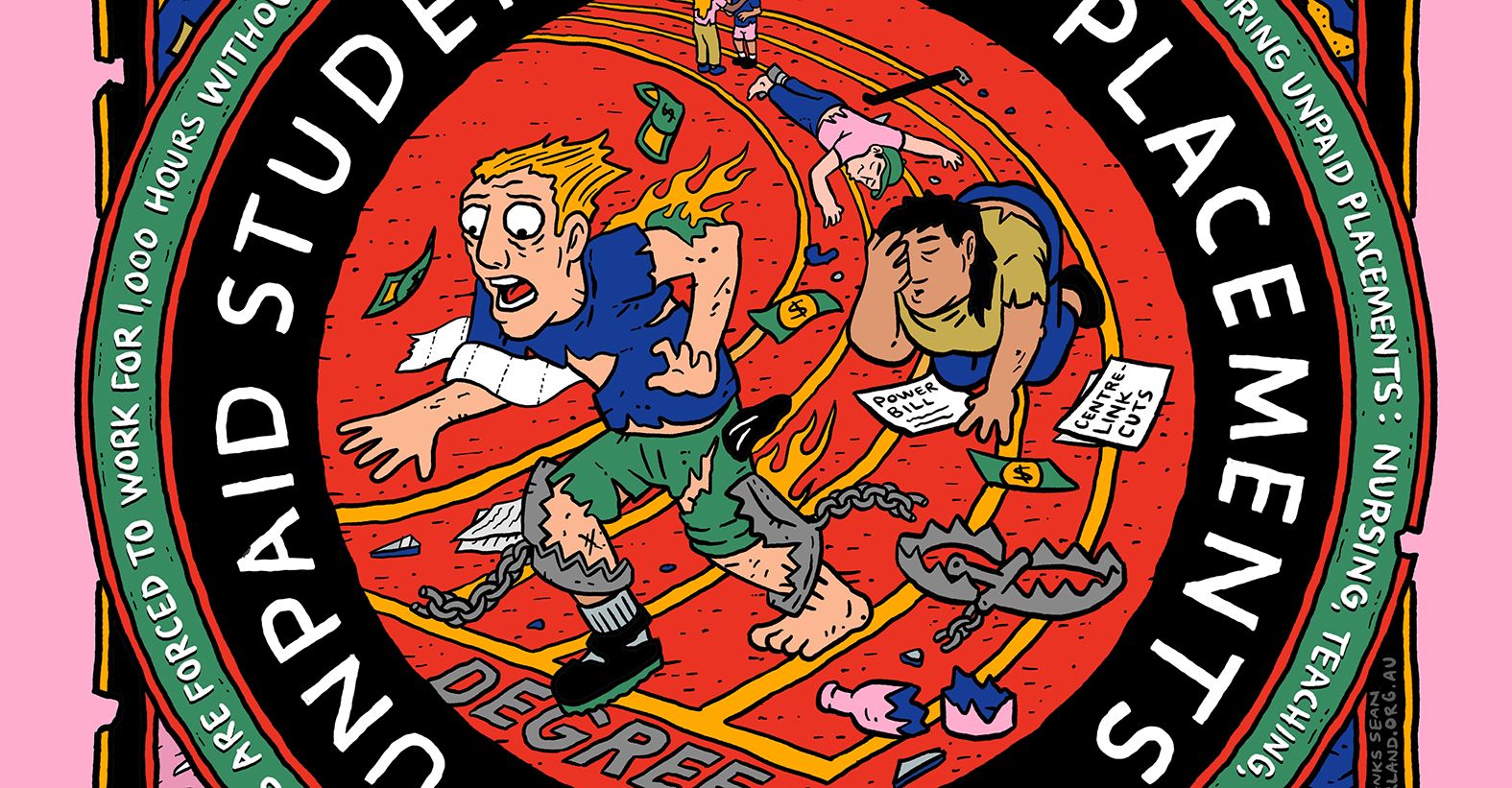Earlier this year the Fair Work Commission (FWC) ruled that the 2015 Coles enterprise agreement, negotiated and endorsed by the retail union – the Shop, Distributive and Allied Employees Association (SDA) – failed to leave the workers at the supermarket giant better off overall when compared to the award. The union claimed that cuts to penalty rates and other reduced entitlements it had approved were trade-offs for a higher base rate of pay and other benefits, such as blood donor leave and an extra five minutes for meal breaks. But analysis by National Tertiary Education Union (NTEU) industrial officer Josh Cullinan found that workers had been left out of pocket by the Coles agreement to the tune of hundreds of millions of dollars. The SDA has since conceded that almost one hundred enterprise agreements they have negotiated may fail the Better Off Overall Test (BOOT).
The repudiations from the conservative media quickly flowed, with commentators swooping on the opportunity to score points against another dodgy trade union. The same writers who berate the CFMEU for winning ‘too high’ wages are all too eager to snipe at the SDA for suppressing the wages of their members. This irony shouldn’t surprise us. Conservatives understand better than most that trade unionism is the last best hope of challenging the neoliberal hegemony: any chink in the armour is to be exploited, even if the cost is rank contradiction.
Of more concern is that there were so few labour movement leaders willing to stand up and condemn the SDA. Many, in fact, jumped to the union’s defence.
Let’s be clear about how dire this situation is: an Australian trade union representing young, low-paid workers, who are disproportionately women, was found by the independent umpire to have knowingly pushed the wages and conditions of their members below the minimum legal standards. Why would a trade union do such a thing?
It is an open secret within the labour movement that the SDA’s leadership have maintained cosy relationships with big retailers and fast food giants – Coles, Woolworths, KFC, McDonalds and others – in order to have easy access to workplaces and maximise their membership. This membership translates to power in the Labor Party and the Australian Council of Trade Unions (ACTU), where the SDA’s conservative Catholic leadership have used their muscle to oppose progressive policy on queer rights and women’s issues. When a senior union official wrote to a number of big employers earlier this year, for example, the subject wasn’t wages, but
their public support for what he described as ‘same-gender’ marriage. Would support for this issue become a condition of employment? ‘Is the company requiring its employees to associate with and support same-gender marriage?’
In other words, a trade union is suppressing the wages and conditions of their own low-paid membership – mainly young women – in order to obstruct marriage equality, women’s reproductive rights and other progressive social policies.
But the ACTU leadership, far from condemning the behaviour, was quick to offer support for the SDA. In a series of bizarre attempts to defend the actions of his affiliate, ACTU Secretary Dave Oliver has argued simultaneously that the FWC got it right in ruling that the Coles agreement left workers worse off and that the SDA had done nothing wrong. Opposition leader Bill Shorten was more circumspect: ‘[I am] not defending the behaviour of the union or the company in this matter at all.’ But he stopped short of calling the SDA’s behaviour what it is: worker exploitation.
Australian fast food and retail workers may be some of the best paid in the world but the evidence suggests they would be better off on the award than on SDA-negotiated agreements.
There are a number of possible reasons why labour movement leaders may have been reluctant to condemn the SDA’s behaviour. The most obvious is money. As the country’s biggest private sector union, SDA’s affiliation fees represent a huge source of revenue for both the ALP and the ACTU; criticising the union could jeopardise that revenue. The other reason is the political power of the SDA. The affiliation fees paid by the union buy them significant quotas on conference floors and, with that, significant political power. In 2015, Dave Oliver saw off a challenge from then ACTU assistant secretary, Tim Lyons, with the support of the SDA – he has been their staunch defender ever since.
These justifications are relatively easy to overcome: leaders of peak bodies and political parties should never allow themselves to be beholden to their dishonest affiliates for fear of them withdrawing their financial support or of political retribution.
But there is a third, more insidious argument that is sometimes used as a justification for not condemning the SDA: that we shouldn’t condemn the practices of the SDA because that would be giving ammunition to the enemy. It implies that, regardless of the behaviour of any particular trade union – even if their actions undermine the interests of working-class people – we shouldn’t criticise them because they are ‘on our side’. At a time when the trade union movement is under attack from aggressive employers and reactionary governments, this siege mentality is pervasive.
In his 1945 essay ‘Through a Glass, Rosily’, George Orwell took issue with this type of logic:
Whenever A and B are in opposition to one another, anyone who attacks or criticises A is accused of aiding and abetting B. And it is often true, objectively and on a short-term analysis, that he is making things easier for B. Therefore, say the supporters of A, shut up and don’t criticise: or at least criticise ‘constructively’, which in practice always means favourably. And from this it is only a short step to arguing that the suppression and distortion of known facts is the highest duty …
Labour movement leaders are engaged in exactly this kind of obfuscation and distortion when they defend the SDA. We know and understand exploitation they perpetrate but find a reason to do nothing about it.
There are alternatives. For instance, the SDA could be kicked out of the ACTU or the ALP. Union leaders could condemn the exploitation of the SDA and demand it reform itself or face a well-organised opponent at its next union elections.
But currently, fear of the SDA’s political power and dependence on the money they use to buy that power is too high. Even more disheartening is that powerful trade unionists refuse to stand up for vulnerable workers for fear of ‘giving ammunition to the enemy’. They seem not to have realised that the real enemy is worker exploitation, and that the SDA is exploiting workers for their own, narrow political ends. As Orwell observed, the distortion of facts and self-delusion may seem sensible in the short term, but in the long run it is poisoning us.






